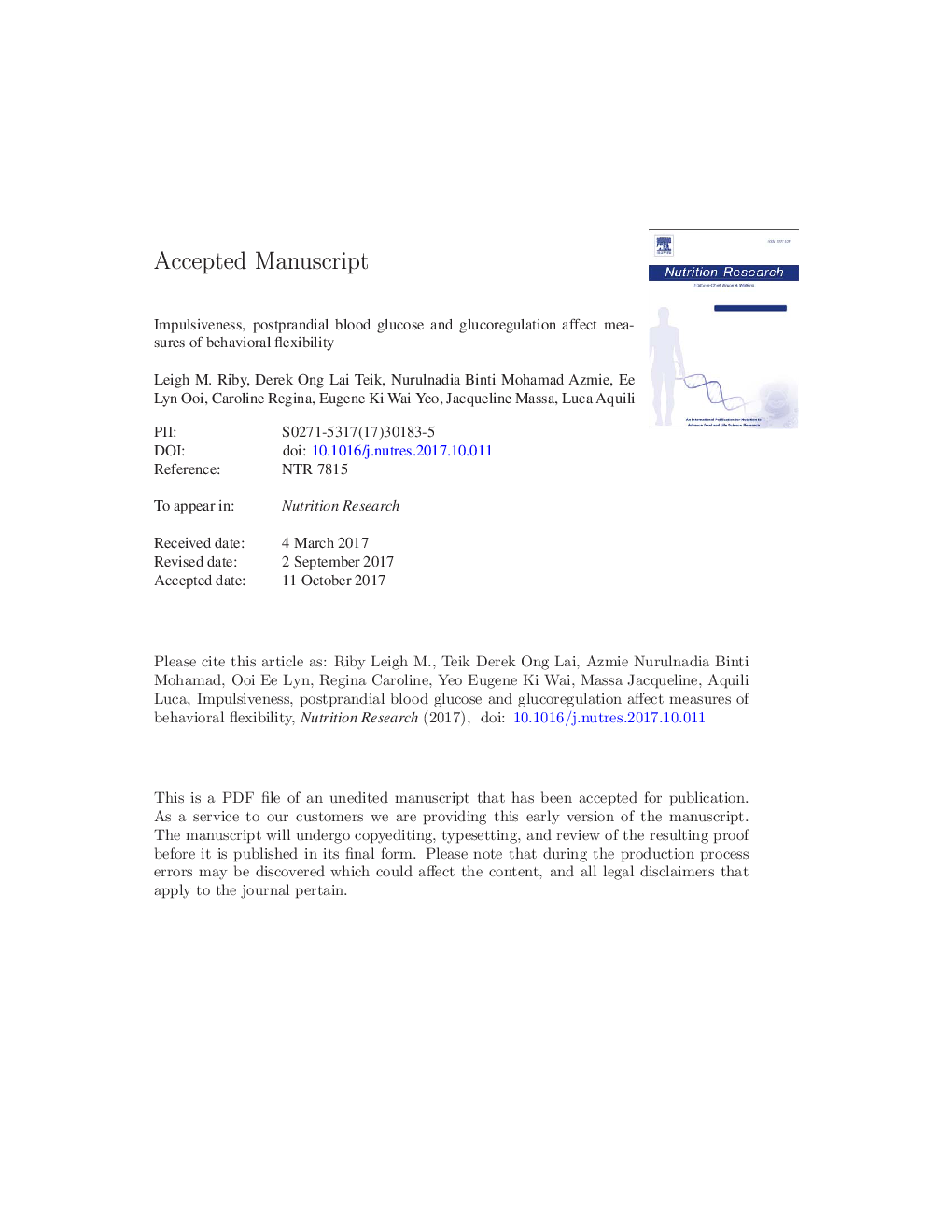ترجمه فارسی عنوان مقاله
تکانشی، گلوکز خون پس از مصرف و گلوکوزیسیون بر اندازه گیری انعطاف پذیری رفتاری تاثیر می گذارد
عنوان انگلیسی
Impulsiveness, postprandial blood glucose, and glucoregulation affect measures of behavioral flexibility
| کد مقاله | سال انتشار | تعداد صفحات مقاله انگلیسی |
|---|---|---|
| 122240 | 2017 | 33 صفحه PDF |
منبع

Publisher : Elsevier - Science Direct (الزویر - ساینس دایرکت)
Journal : Nutrition Research, Volume 48, December 2017, Pages 65-75

